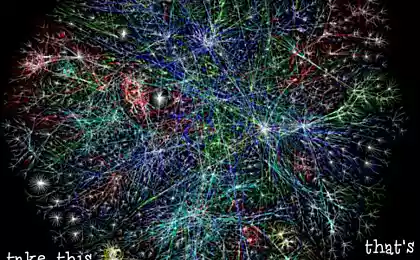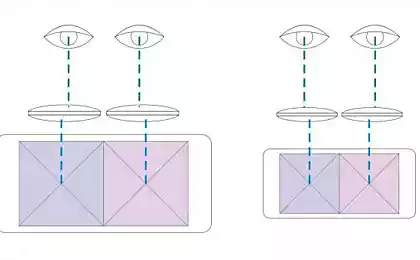694
7 SECRETS of people who know how not to be distracted
In the era of smartphones and Internet, we get distracted and do not give focus on work. But there's good news: if you learn to resist it, you much ahead of all the others, prove Laura Shin, Forbes author, and Professor at Georgetown University cal Newport.
For the first 11 minutes, when I was writing this article, I triple-checked the email, and one of the letters forced me to start one new business. Then I saw the message that I something did not pay, and went into PayPal to do it. Then I remembered that I need to transfer money from business account to personal account, done that, and then finally closed the mail and banking sites — and began to text.
Seven minutes later, resisting the urge to go into Facebook and Twitter from your phone, I put it away out of sight.
I acquired precisely those problems that cal Newport, Professor at Georgetown University, proposes to solve in his book Deep Work: Rules for Success Focused in a Distracted World. There is a lot of data psychological research and practical advice, the book proves that high degree of concentration is becoming increasingly rare and valuable thing, and that the ability to achieve such concentration is the key not only to career success but to a better life.
Five million ninety four thousand two hundred five
Newport, which is effectively using the time — was driving home during our interview, defines the deep work, "deep work" as "the total concentration on a complex cognitive task". This is the state in which you can quickly master difficult things, to work much faster and much better than when you are distracted. And obviously, if you can do more complex work faster, you are ahead of everyone else.
Newport was never registered on Facebook and use e-mail to a minimum, says: "Communication interferes with our workflow; it is as if the factory workers were forced to wear clumsy gloves, which complicate the use of the tools, generate a lot of errors and slow down". Take at least this expectation that we must always monitor e-mail and messengers: "Our way of communication in the era of knowledge — that is like wearing clumsy mittens on the brain. It undermines your cognitive ability robs you of productivity and destroys you produce value."
How to learn to control your attention, to do "deep work" and find time for her.
1. Spit on emailStanford Professor Donald Knuth that is released from e-mail January 1, 1990, wrote on the website: "Email is a wonderful thing for those whose job it is to be in the know. But not for me. My goal is to not be aware of. What I do requires long hours of mental effort and continuous focus."
In a broader sense, it is probably useful to learn bad to cope with any kind of routine. Nobel laureate Richard Feynman avoided administrative tasks, explaining to the people who tried to get him to work in the admissions office, "I'm irresponsible".
Newport advises to resist the urge to look productive, defiantly doing something — for example, answering emails at any time of the day, visiting a lot of different meetings, constantly responding to messages in instant messengers. You may feel that you are productive — but it's not.
"We have a certain rule, that every letter deserves an answer. I recommend to ignore this rule. If you can get away with — don't answer that," says Newport.
2. Take boredom for granted"As soon as you will program your brain to distract you all the time aspire to this," writes Newport. He says you need to reprogram the brain so that it is easier to remain focused. Now we often with the effort to cut out time to work out the many hours that go in our social network and e-mail. Do the opposite: plan in advance time that you spend on the Internet, and at other times avoid it. "It helps the brain to come to terms with the feeling of boredom with the lack of new incentives, says Newport. — This is needed to support greater workflow".
If this seems difficult, start to do so: put it next to a computer a notebook where you will record the time when you next time you go to the Internet, and all the forces that resist until the time is not come. If you need the Internet for work, get the app that blocks specific sites, for example, Anti-Social. To improve concentration, plan the use of the Internet and home to hours do not undermine your training resilience.
Newport says that most people complain about it: it's hard. "People underestimate how much they are hooked on these new incentives and looking for them at the slightest hint of boredom".
3. Don't do something just because there is some benefitThere are lots of tools we can use to work, but, says Newport, you need to ruthlessly eliminate all but those tools where the positive aspects significantly outweigh the negative. Famous writers Malcolm Gladwell and Michael Lewis does not use Twitter. They know that Twitter is beneficial to other writers, but for them its benefits outweigh the disadvantages.
How to overcome this temptation is to use something that can theoretically be profitable? Newport advises to formulate some key objectives of your professional life, and then to choose two or three most important lessons/the process that will help you to achieve those goals, and then allocate the:
Use only tools of the first type — when you see clear benefits that outweigh the cons.
4. The law 20/80
This law States: "In many situations, 80% of an effect is due to only 20% of the causes». Newport says that when it comes to your main objectives, you are highly likely to determine 20% of your efforts 80% bring you closer to your goals. "What you do best, brings much more benefit and value than what you are doing is not so good," he says.
To understand where to concentrate, it is possible if to apply the following trick: think about how much you'll need time to train a fresh graduate of a particular skill. "Tasks that require "deep work", usually require the application of the skills you mastered during the long time that it would be difficult to reproduce person without your training." For example, answering emails, attending meetings or preparing PowerPoint presentations is unlikely to require any special skills. But the development of new business strategies, building complex algorithm or writing a book in your specialty is a person without your experience it will be difficult to repeat. Here on these objectives and focus.
5. Go away from social networks
You know, there are people who — in order to streamline your life — put all your stuff in a box and then leave myself only what I take out of the box in the next few months? From everything else they get. Newport recommends that you crank out a similar operation with the social media you use — Facebook, Twitter, LinkedIn, Instagram, Snapchat, Google+, Vine, etc. do Not use any of these products for 30 days. And after 30 days think for each of them:
1) it would be more useful to you than if, in the past 30 days have you used this social network;
2) draw other people attention to whether you are present in this social network.
If both answers are "no", then delete your account if both answers are "Yes", continue to use.
It's a scary proposition, but Newport says that this solution is much easier than it sounds. "It takes a month, and they say, "Why didn't I do this sooner? Why did I spend so much time?"Failure was not complicated."
6. Your time is a scarce resource
Newport describes the experiment in organizing a 4-day work week, which put the Creator of Basecamp and co-author of the bestselling book ReWork Jason fried. Fried discovered: "as soon As people have less time to work, they began to appreciate this time so much more. They have become picky about their time... they don't spend it on things that are not important. When you have less time, you spend it more wisely".
The experiment went so well that the company gave to the employees the whole of June to work on their own projects. What happened? The staff suggested two projects, which should significantly improve the performance of the company.
Newport also says a famous Professor at Wharton business school, Adam Grant teaches only in the fall, spring and summer fully takes to his studies. In these months he has satisfied the "deep dive" on three or four days, during which he did not respond to e-mail and includes Voicemail to concentrate on a single task. He goes to the office — but everyone warns that there will be a few days to answer emails because he wants to work for several days without distraction.
7. Connect the other
If your company still does not understand the danger of what Newport calls "surface work" — a chore that does not require much intellectual effort, for the technical issues, which can be performed parallel to the distraction something else, then talk to your boss and try to figure out how you to use more concentration and this deep dive.
Start with the definition of terms — what is "deep" and "superficial" work, and then ask: "what is the ratio of deep and surface work, the number of hours I should focus?"Perhaps to ask such uncomfortable. But research from Harvard business school and Boston Consulting Group showed that although the topic of surface activity is usually not openly discussed as soon as employees begin to raise this issue, they are not possible to always be connected, not immediately responding to messages, etc.
"So if you are worried that your organization will not support deep work, says Newport, I suggest you just start talking about it with colleagues, with boss, with the other chiefs. Discuss what is deep work, and what role it should play that will help her to do. I think you'll be surprised how this topic is important to other people and how many positive responses you receive."published
P. S. And remember, only by changing their consumption — together we change the world! ©
Join us in Facebook , Vkontakte, Odnoklassniki
Source: ideanomics.ru/?p=5400
For the first 11 minutes, when I was writing this article, I triple-checked the email, and one of the letters forced me to start one new business. Then I saw the message that I something did not pay, and went into PayPal to do it. Then I remembered that I need to transfer money from business account to personal account, done that, and then finally closed the mail and banking sites — and began to text.
Seven minutes later, resisting the urge to go into Facebook and Twitter from your phone, I put it away out of sight.
I acquired precisely those problems that cal Newport, Professor at Georgetown University, proposes to solve in his book Deep Work: Rules for Success Focused in a Distracted World. There is a lot of data psychological research and practical advice, the book proves that high degree of concentration is becoming increasingly rare and valuable thing, and that the ability to achieve such concentration is the key not only to career success but to a better life.
Five million ninety four thousand two hundred five
Newport, which is effectively using the time — was driving home during our interview, defines the deep work, "deep work" as "the total concentration on a complex cognitive task". This is the state in which you can quickly master difficult things, to work much faster and much better than when you are distracted. And obviously, if you can do more complex work faster, you are ahead of everyone else.
Newport was never registered on Facebook and use e-mail to a minimum, says: "Communication interferes with our workflow; it is as if the factory workers were forced to wear clumsy gloves, which complicate the use of the tools, generate a lot of errors and slow down". Take at least this expectation that we must always monitor e-mail and messengers: "Our way of communication in the era of knowledge — that is like wearing clumsy mittens on the brain. It undermines your cognitive ability robs you of productivity and destroys you produce value."
How to learn to control your attention, to do "deep work" and find time for her.
1. Spit on emailStanford Professor Donald Knuth that is released from e-mail January 1, 1990, wrote on the website: "Email is a wonderful thing for those whose job it is to be in the know. But not for me. My goal is to not be aware of. What I do requires long hours of mental effort and continuous focus."
In a broader sense, it is probably useful to learn bad to cope with any kind of routine. Nobel laureate Richard Feynman avoided administrative tasks, explaining to the people who tried to get him to work in the admissions office, "I'm irresponsible".
Newport advises to resist the urge to look productive, defiantly doing something — for example, answering emails at any time of the day, visiting a lot of different meetings, constantly responding to messages in instant messengers. You may feel that you are productive — but it's not.
"We have a certain rule, that every letter deserves an answer. I recommend to ignore this rule. If you can get away with — don't answer that," says Newport.
2. Take boredom for granted"As soon as you will program your brain to distract you all the time aspire to this," writes Newport. He says you need to reprogram the brain so that it is easier to remain focused. Now we often with the effort to cut out time to work out the many hours that go in our social network and e-mail. Do the opposite: plan in advance time that you spend on the Internet, and at other times avoid it. "It helps the brain to come to terms with the feeling of boredom with the lack of new incentives, says Newport. — This is needed to support greater workflow".
If this seems difficult, start to do so: put it next to a computer a notebook where you will record the time when you next time you go to the Internet, and all the forces that resist until the time is not come. If you need the Internet for work, get the app that blocks specific sites, for example, Anti-Social. To improve concentration, plan the use of the Internet and home to hours do not undermine your training resilience.
Newport says that most people complain about it: it's hard. "People underestimate how much they are hooked on these new incentives and looking for them at the slightest hint of boredom".
3. Don't do something just because there is some benefitThere are lots of tools we can use to work, but, says Newport, you need to ruthlessly eliminate all but those tools where the positive aspects significantly outweigh the negative. Famous writers Malcolm Gladwell and Michael Lewis does not use Twitter. They know that Twitter is beneficial to other writers, but for them its benefits outweigh the disadvantages.
How to overcome this temptation is to use something that can theoretically be profitable? Newport advises to formulate some key objectives of your professional life, and then to choose two or three most important lessons/the process that will help you to achieve those goals, and then allocate the:
- tools that will provide this significant assistance;
- tools that clearly have a negative impact on this job;
- tools that special effects will not have.
Use only tools of the first type — when you see clear benefits that outweigh the cons.
4. The law 20/80
This law States: "In many situations, 80% of an effect is due to only 20% of the causes». Newport says that when it comes to your main objectives, you are highly likely to determine 20% of your efforts 80% bring you closer to your goals. "What you do best, brings much more benefit and value than what you are doing is not so good," he says.
To understand where to concentrate, it is possible if to apply the following trick: think about how much you'll need time to train a fresh graduate of a particular skill. "Tasks that require "deep work", usually require the application of the skills you mastered during the long time that it would be difficult to reproduce person without your training." For example, answering emails, attending meetings or preparing PowerPoint presentations is unlikely to require any special skills. But the development of new business strategies, building complex algorithm or writing a book in your specialty is a person without your experience it will be difficult to repeat. Here on these objectives and focus.
5. Go away from social networks
You know, there are people who — in order to streamline your life — put all your stuff in a box and then leave myself only what I take out of the box in the next few months? From everything else they get. Newport recommends that you crank out a similar operation with the social media you use — Facebook, Twitter, LinkedIn, Instagram, Snapchat, Google+, Vine, etc. do Not use any of these products for 30 days. And after 30 days think for each of them:
1) it would be more useful to you than if, in the past 30 days have you used this social network;
2) draw other people attention to whether you are present in this social network.
If both answers are "no", then delete your account if both answers are "Yes", continue to use.
It's a scary proposition, but Newport says that this solution is much easier than it sounds. "It takes a month, and they say, "Why didn't I do this sooner? Why did I spend so much time?"Failure was not complicated."
6. Your time is a scarce resource
Newport describes the experiment in organizing a 4-day work week, which put the Creator of Basecamp and co-author of the bestselling book ReWork Jason fried. Fried discovered: "as soon As people have less time to work, they began to appreciate this time so much more. They have become picky about their time... they don't spend it on things that are not important. When you have less time, you spend it more wisely".
The experiment went so well that the company gave to the employees the whole of June to work on their own projects. What happened? The staff suggested two projects, which should significantly improve the performance of the company.
Newport also says a famous Professor at Wharton business school, Adam Grant teaches only in the fall, spring and summer fully takes to his studies. In these months he has satisfied the "deep dive" on three or four days, during which he did not respond to e-mail and includes Voicemail to concentrate on a single task. He goes to the office — but everyone warns that there will be a few days to answer emails because he wants to work for several days without distraction.
7. Connect the other
If your company still does not understand the danger of what Newport calls "surface work" — a chore that does not require much intellectual effort, for the technical issues, which can be performed parallel to the distraction something else, then talk to your boss and try to figure out how you to use more concentration and this deep dive.
Start with the definition of terms — what is "deep" and "superficial" work, and then ask: "what is the ratio of deep and surface work, the number of hours I should focus?"Perhaps to ask such uncomfortable. But research from Harvard business school and Boston Consulting Group showed that although the topic of surface activity is usually not openly discussed as soon as employees begin to raise this issue, they are not possible to always be connected, not immediately responding to messages, etc.
"So if you are worried that your organization will not support deep work, says Newport, I suggest you just start talking about it with colleagues, with boss, with the other chiefs. Discuss what is deep work, and what role it should play that will help her to do. I think you'll be surprised how this topic is important to other people and how many positive responses you receive."published
P. S. And remember, only by changing their consumption — together we change the world! ©
Join us in Facebook , Vkontakte, Odnoklassniki
Source: ideanomics.ru/?p=5400
Careful! Fluoride — a toxin for the brain and the thyroid gland
How to grow POMEGRANATE on the windowsill























